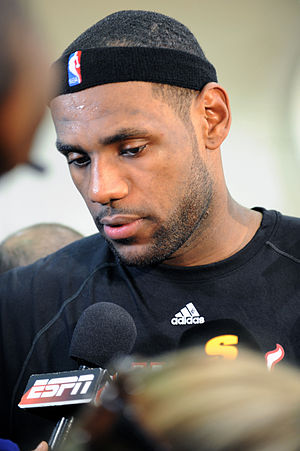 |
| Logo of the NBA Finals. (Photo credit: Wikipedia) |
That's quite a collection of accomplishments for any team over any period of time. For the Miami Heat, that's three years of work. Hard work. Blood-sweat-and-tears-type work.
But does it constitute a bona fide NBA dynasty? If not, what more must LeBron James and company do to establish their run as one of the greatest pro basketball has ever seen?
Those are difficult questions to answer, especially without a clear-cut definition of what constitutes a dynasty. Back in October, Grantland's Bill Simmons took a crack at it—while also taking a jab at Bleacher Report, ironically enough—and came up with just four teams that unequivocally qualify for the sport's most coveted label:
—The George Mikan-era Minneapolis Lakers, the NBA's first dynasty, who won five titles in six seasons.
—The Boston Celtics of the Bill Russell vintage, who won a whopping 11 championships in the span of just 13 seasons.
—Magic Johnson's "Showtime" Los Angeles Lakers, who cracked the Finals nine times and won five titles therein between 1980 and 1990.
—Michael Jordan's Chicago Bulls, who strung together two separate three-peats in an eight-year period.
Aside from those teams, Simmons included Larry Bird's Celtics, Tim Duncan's San Antonio Spurs, and the Shaquille O'Neal-Kobe Bryant Lakers as second-tier "dynastenders."
He took the time therein to loosely articulate what a "high-end dynastender" actually is ("a team that contends for a solid decade while winning somewhere between two and four titles"), but at no point did Simmons explicitly describe what makes a dynasty a dynasty.
http://bleacherreport.com/articles/1680222-are-we-witnessing-an-nba-dynasty-in-the-making-for-the-miami-heat




